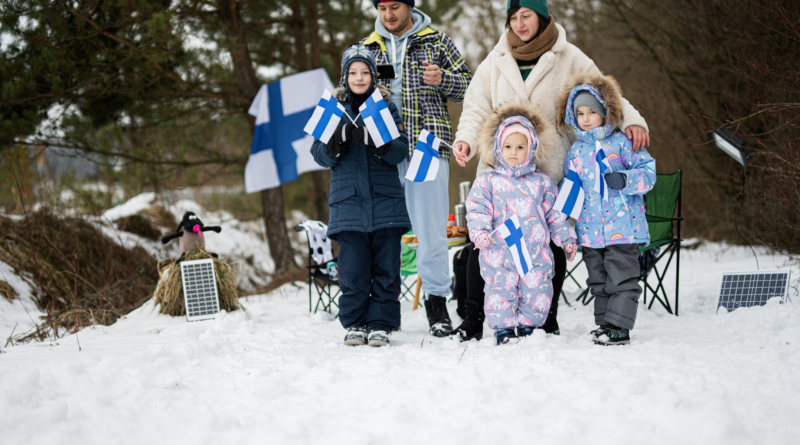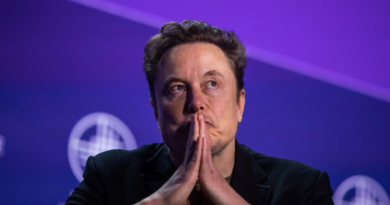Finland is the world’s happiest country yet again. Here are the top 10 on the list
It’s a good day to be a Finn—again.
For the 8th successive year, Finland ranks no.1 on the annual World Happiness Report. The report, published on the UN’s International Day of Happiness, is based on analysis of how the residents of over 140 countries rate their quality of life. With 10 meaning someone is currently living the best possible life they can imagine, Finns came in first with an average score of 7.74.
“They’re wealthy, they’re healthy, have social connections, social support, [and] a connection with nature,” Jan-Emmanuel De Neve, professor of economics at the University of Oxford, leader of the Wellbeing Research Center and editor of The World Happiness Report, tells Fortune. “They’re not happy, joyful, dancing in the streets type people, but they’re very content with their lives.”
Finland was followed by Denmark (no.2), Iceland (no.3), Sweden (no.4), and the Netherlands (no.5). While Mexico (no.10) and Costa Rica (no.6) joined the top 10 for the first time in the list’s history, the U.S. dropped to its lowest ranking at no. 24. Last year, the U.S. dropped out of the top 20 for the first time since the 2012 inaugural list.
The Nordic countries, historically at the top, are getting happier while the U.S. is getting less happy. While GDP per capita is relatively similar across the Nordic countries, the U.S., Australia, and the UK, the distribution of wealth sets them apart.
“In these Nordic Scandinavian countries, a rising tide lifts all boats, so the levels of economic inequality are much less, and that reflects in well-being as well,” De Neve says. “In Finland, most people will rate themselves as seven or an eight, whereas if you look at the distribution of well-being in the States, there’s a lot of 10s out there, but there’s a lot of ones as well.”
While the rankings factored in a country’s GDP per capita, wealth distribution, and life expectancy, they found social trust and connection help determine happiness more than people may think.
This year, the researchers found a strong correlation between someone believing in the kindness of others and their own perceived happiness. Across the board, too often, people underestimate the kindness of others, like, say, if someone will return a lost wallet. It affects well-being. Wallets are returned to their owner at almost twice the rate people assume. However, compared to the U.S., more people in Nordic countries believe a lost wallet will be returned (and more people are likely to return it).
Maintaining a strong sense of community with acts such as regularly dining with others, for example, improves social trust and happiness, the report found. “The more you believe in the kindness of others, or in other words, are socially trusting, the higher your individual well-being and the higher collective well-being,” De Neve says. “The Nordic countries, the Scandinavian countries, do better, both in the belief in others’ kindness and in the actual wallet drop.”
As for Mexico and Costa Rica joining the top 10 for the first in the list’s history, De Neve points to the strength of the countries’ social fabrics. Latin American countries reported the highest number of shared meals and ranked high on social connectedness and trust. It helps explain why their rankings dipped more dramatically in the COVID-19 isolation years (De Neve says that 13 out of 14 meals shared across seven days correlated to the highest well-being measure).
“It is not because of high GDP and the highest life expectancy,” De Neve says about these two countries. “They do spend time dining and lunching with others, having friends, and it’s not all cannibalized by social media, and so we picked this up in the data.”
The report is published yearly by the Wellbeing Research Centre at the University of Oxford, alongside partners, including Gallup, the UN Sustainable Development Solutions Network, and an editorial board that analyzes the findings pro bono.
As De Neve dug into why Finland kept its reign, something else came to light that helped them stand out even from their Nordic counterparts.
“They’re content with less,” he says. “They had less, and they’re more content with less. So they’re happier with what they’ve got.”
Here are the world’s 25 happiest countries
- Finland
- Denmark
- Iceland
- Sweden
- Netherlands
- Costa Rica
- Norway
- Israel
- Luxembourg
- Mexico
For more on happiness:
- Researchers have followed over 700 people since 1938 to find the keys to happiness. Here’s what they discovered
- Americans are proof that money can’t buy happiness, new report shows
- You can learn to be happier. This class can teach you how in just 1 week
This story was originally featured on Fortune.com
source




